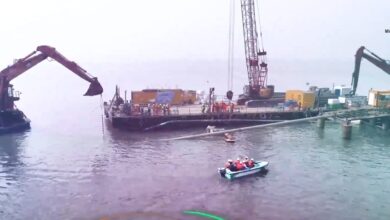Nationwide Strike by 25 IOCL Unions on October 7: Petrol and Diesel Crisis Looms Large
In case of a strike, IOCL's stares at a daily loss, estimated at Rs. 2,000 to 3,000 Crores per day

Fill It, Shut IT & Forget It before October 6….
India’s energy supply is staring at a major crisis as 25 unions of the Indian Oil Corporation Limited (IOCL) have announced a nationwide strike on October 7. Union leaders have declared that if management and the government fail to provide concrete assurances, operations at all refineries, pipelines, depots, and factories will be completely shut down.
The move, they said, will not just be an administrative conflict but a direct blow to the country’s energy security and economy.
IOC’s Dominant Role in Fuel Supply
India consumes nearly 5.5 million barrels of petroleum products daily, with diesel and petrol forming the bulk of demand. In August alone, diesel consumption touched 6.5 million tonnes, while petrol usage stood at 3.5 million tonnes.
IOC, with 31% of India’s refining capacity, operates 11 refineries that together produce about 80.7 million tonnes annually—an average of 2.2 lakh tonnes (1.6 million barrels) daily. A single day of production halt at IOC is estimated to cause direct and indirect losses between ₹2,000–3,000 crore.
Why Are the Unions on Watpath?
Union leaders allege that their demands have been left unheard for a long time now: These are –
- Immediate stoppage of unilaterally declared recruitment on E-O violating the subsisting memoranda of settlement
- Immediate stoppage of Synergy and Restructuring in Pipeline and Marketing divisions
- Unilateral withdrawal of facilities violating MoS in all divisions
- Immediate recruitment of blue-collar and white-collared workmen in all divisions
- Sudden decision of deduction factor for PIS, Discuss with the unions on the calculation of such factor
- Stoppage of outsourcing of permanent workmen’s jobs in all divisions, such as aviation, and other core activities in all divisions
- Immediate stoppage of outsourcing of all marketing locations. 8. Stoppage of violation of labour laws of the land
- Violation of bi-partite/tripartite settlement on Promotion Policy signed in the year 1991,1992,1996, 2001 and all subsequent agreements of all the Recognized Unions of all Divisions for arbitrarily and illegally withdrawing backlog vacancies under the 50:50 promotion policy in vogue w.e.f. 01/07/2025
- Implementation of 40% pensionary benefits on last drawn Basic pay plus Dearness allowance under the Superannuation benefit fund scheme (SABE), in vogue -violation of tripartite settlement signed by the Recoanized Unions of Refinery Division on Various dates since 1987 onwards before the respective Re Regional Labour Commissioner (Central) Government of India, Ministry of Labour
- Furnishing the pay data (Year -wise) for the last 5 years with regard to Post-Retirement Medical Attendance scheme (PRMAS) and representation of Refineries Divisions and pipelines Unions Representatives In the PRMAS Trust of IOCL
- Stoppage of termination of contract workmen in all division
- Immediate implementation of job security, fair wages and retiral benefits to all contract workmen of IOCL
We the recognized unions of IOCL demand immediate and effective implementation of the above demands-failing-which-we-would-be-forced-to-resort to agitation.
These demands have been ignored for years. Instead, they say, privatization policies and an increase in contractual hiring have left permanent employees insecure and “marginalized.”
“This is both worker exploitation and tampering with national wealth,” one union leader stated.
Warning Bell Rings from Begusarai
The joint statement was first issued at IOC’s Barauni Refinery in Begusarai, Bihar, triggering nationwide concerns. Panic buying has already been reported at petrol pumps, with long queues and bulk storage by consumers. Local administrations have appealed against hoarding, but fears of shortages remain.
Potential Impact of the Strike
If the October 7 strike goes ahead, the consequences could be far-reaching:
- Transport paralysis: Truck, bus, taxi, and auto services disrupted.
- Supply chain collapse: Fruits, vegetables, food grains, and essential goods stuck.
- Agriculture setback: Diesel shortages hitting irrigation and harvesting during Kharif season.
- Industrial slowdown: Movement of raw materials and finished goods halted.
- Inflationary surge: Prices of daily necessities likely to spike.
- Experts warn that a week-long strike could cause losses of ₹15,000–20,000 crore, cut government tax revenues, and dent GDP growth.
Government and Management Response
So far, neither IOCL management nor the government has issued an official statement. Sources indicate the Ministry of Petroleum & Natural Gas is closely monitoring the situation and exploring negotiations. However, the unions have emphasized that only a written agreement will be acceptable.
The timing adds to the gravity of the issue, with the festive season approaching and farmers in the midst of Kharif harvesting.
Political Reactions and Public Anxiety
Political opposition has accused the government of ignoring employee concerns. Meanwhile, public anxiety is evident in fuel hoarding and panic buying across states.
Experts call the strike announcement not just an industrial dispute but a litmus test for India’s energy security. With IOC responsible for a third of the country’s refining capacity, even a partial shutdown could cripple supplies and inflict massive economic damage.
The nation now waits to see if the IOCL management can broker peace in time—or whether India must brace for a full-blown fuel crisis starting October 7.
So, in the meantime, Fill It, Shut IT & Forget It before October 6….




